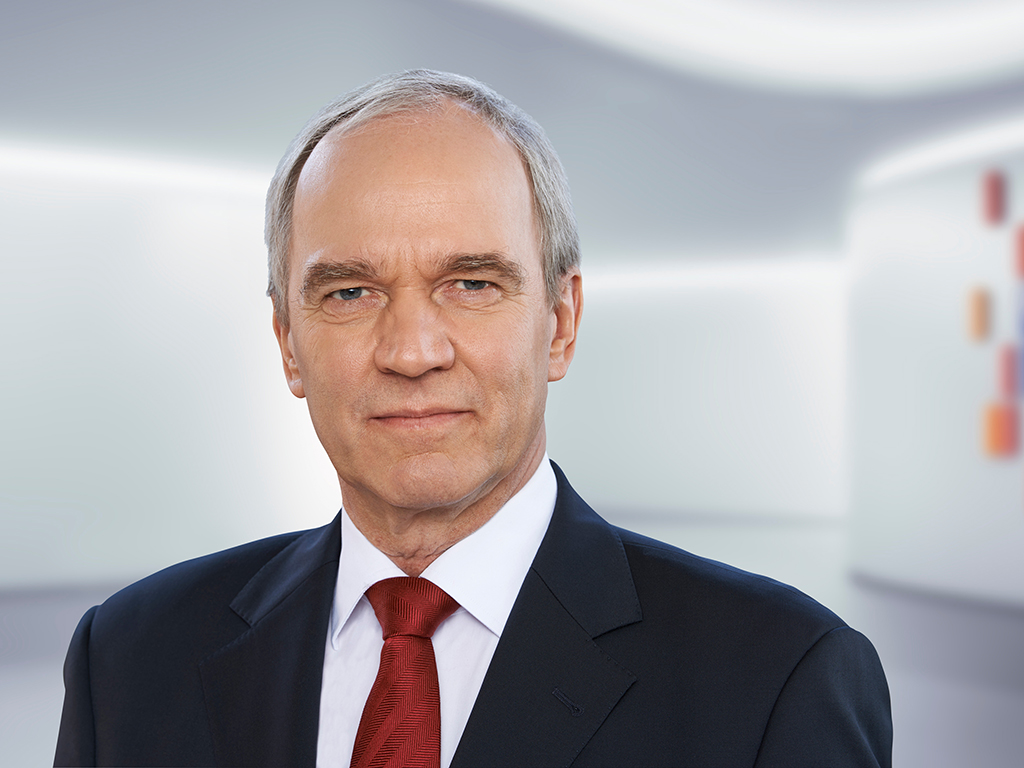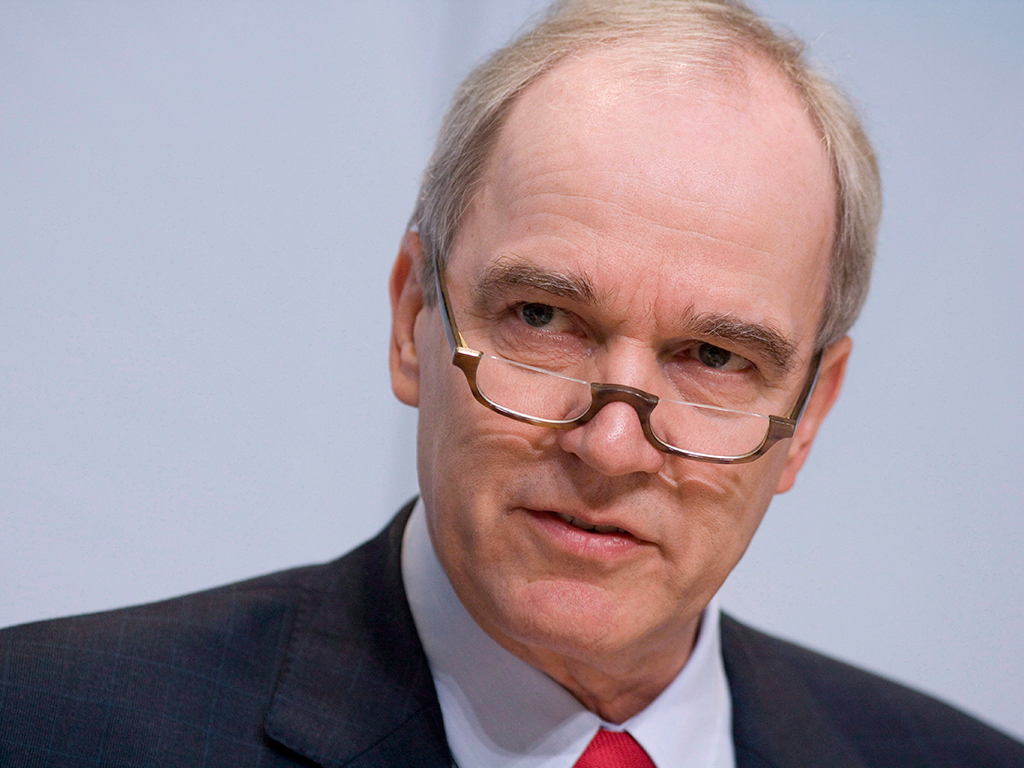
Being the man behind the restructuring and burgeoning success at one of the world’s biggest pharmaceutical firms is no small feat. But Merck KGaA Global Chairman Karl-Ludwig Kley, while soft-spoken, has been fiercely determined to make a lasting impact on stakeholders since he took over the firm in April 2007. Here, he was tasked with turning around the somewhat flailing company.
Since then, Kley has become known for expressing strong views on the pharma industry, especially regarding current industry challenges and what it will take for firms to win the battle.
Karl-Ludwig Kley CV

BORN
1951, Germany
EDUCATION
Doctorate, Law, University of Munich
EXPERIENCE
1971: Industrial Business Apprenticeship, Siemens AG
1982: Corporate Finance and Assistant to the Chairman of the Management Board, Bayer AG
1987: CFO, Bayer AG, Japan
1991: Senior Executive, Sales and Marketing, Pharmaceuticals, Bayer AG
1994: Head of Pharmaceuticals, Bayer S.p.A., Italy
1997: Head of Corporate Finance and Investor Relations, Bayer AG
1998: CFO, Executive Board Member, Deutsche Lufthansa AG
2006: Vice Chairman of the Executive Board, Merck KGaA
2007: Chairman of the Executive Board, Merck KGaA
At 62, Kley has gathered vast experience across different industries. He originally began his career as an industrial business apprentice at Siemens and went on to study law, earning a doctorate from the University of Munich in 1986.
From then on, he held several senior executive roles at Bayer, notably running its Italian and Japanese subsidiaries and later becoming head of corporate finance and investor relations. He moved out of the pharmaceutical industry in 1998 when he became a member of the executive board of Deutsche Lufthansa, serving as its chief financial officer up until he joined Merck.
A radical cure
His many years in pharma and broad executive experience has given Kley key insight in to the industry, which he often comments on in German and international media.
That background is also why Merck’s board chose him to succeed predecessors Bernhard Scheuble and Michael Roemer, who with their postponements of a much-needed restructuring, had set the world’s oldest pharmaceutical and chemical company (Merck has roots dating back to 1668), behind major competitors like Bayer and Boehringer. In order to regain market share and lose the dusty image, Kley was left with the goal of fostering innovation and turning the firm around.
The otherwise rather subtle and literature-obsessed executive, enforced a radical cure aimed at the ailing pharmaceutical business, which contributes more than half of group sales. The last drug that was developed entirely in Merck laboratories – a blood pressure medicine called Concor – dates back to 1988.
This stands in stark comparison to Bayer and Boehringer who in recent years have launched several new drugs. Kley’s innovation push got off to a rocky start when the European Medicines Agency first rejected lung cancer drug Erbitux in 2009, and a year later voted against multiple sclerosis drug Cladribine. In addition, Kley had to make some unpopular decisions in the ongoing restructuring which prompted many job losses.
In a 2007 press conference, Kley said he had achieved many of his objectives since his appointment, but his plans to double the size of Merck’s consumer health business had been thwarted by high valuations of potential acquisitions.
Asked whether he would instead sell the business, he said that he’d “never exclude any option that makes economic sense. With the current pricing environment, I don’t see that we could spend billions to double the business to reach critical mass on a global scale”.
Bolstering the pipeline
Notably, Kley has been actively seeking acquisitions in order to let Merck swiftly emerge as a more innovative and collaborative company. He has already sold the company’s generic drugs division to US pharma firm Mylan, allowing him to reinforce the company’s drugs arm with the purchase of Switzerland’s Serono, as well as US firm Millipore for laboratory services.
Merck in numbers
1668
Founded
38,000
Employees
€11.1bn
Revenue 2013
22
Pharmaceutical brands
At the behest of the Merck family, which still retains a stronghold on the firm, Kley increased the size of chemical divisions and expanded its business significantly in emerging markets.
The Merck foreman, who is also a leading member of the chemical industry association VCI, expanded its business in North America too. This pushed the firm’s sales in emerging markets to exceed those in Europe for the first time ever, in the third quarter of 2013.
Now, Kley is pushing ahead with another strategy that will see the company focus on oncology and immunology to try and bolster its pipeline. They will also create smaller and more entrepreneurial units, which are more representative of the biotech sector.
The company is also looking to set up deals with external partners such as investors, in order to produce new, experimental medicines.
Part of his strategy is to push into a new class of copycat medicines that offer lower drug bills for national healthcare systems, while threatening rival pharmaceutical companies with a fresh wave of competition.
In a recent interview with The Financial Times, Kley said that he expected biosimilars – cheaper copies of expensive biological drugs – “to become an important new market as governments around the world seek to lower healthcare costs”.
“Merck has all the capabilities to compete in biosimilars. I expect significant growth in the market by the second half of this decade,” he said.
Back to black
So far, Kley’s careful, yet significant, corporate changes have had a strong impact on Merck. After years of sales slumps and poor revenue streams, the firm saw rising earnings and revenue figures in late 2013, pushing the firm’s growth back in the black with a € 3,253.3m profit for the year.
The strong performance was especially due to the effects of Kley’s cost-cutting manoeuvres and prompted the chairman to increase the company’s dividend payment to shareholders to €1.90 per share, from the original €1.70 – a move that resounded well with analysts across the pharma industry.
Still, there’s a lot of work to be done in order to maintain Merck’s positive momentum and keep shareholders happy. To this end, Kley has said that he is in no hurry to retire and will stay at the helm of Merck, maintaining its heavily entrenched costs-savings programme for some time to come. “My contract runs until 2016 and I’m the sort of person who likes to fulfil contracts.”
Merck in pictures





